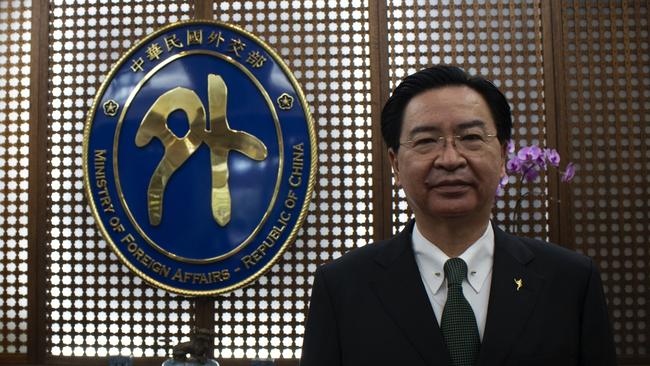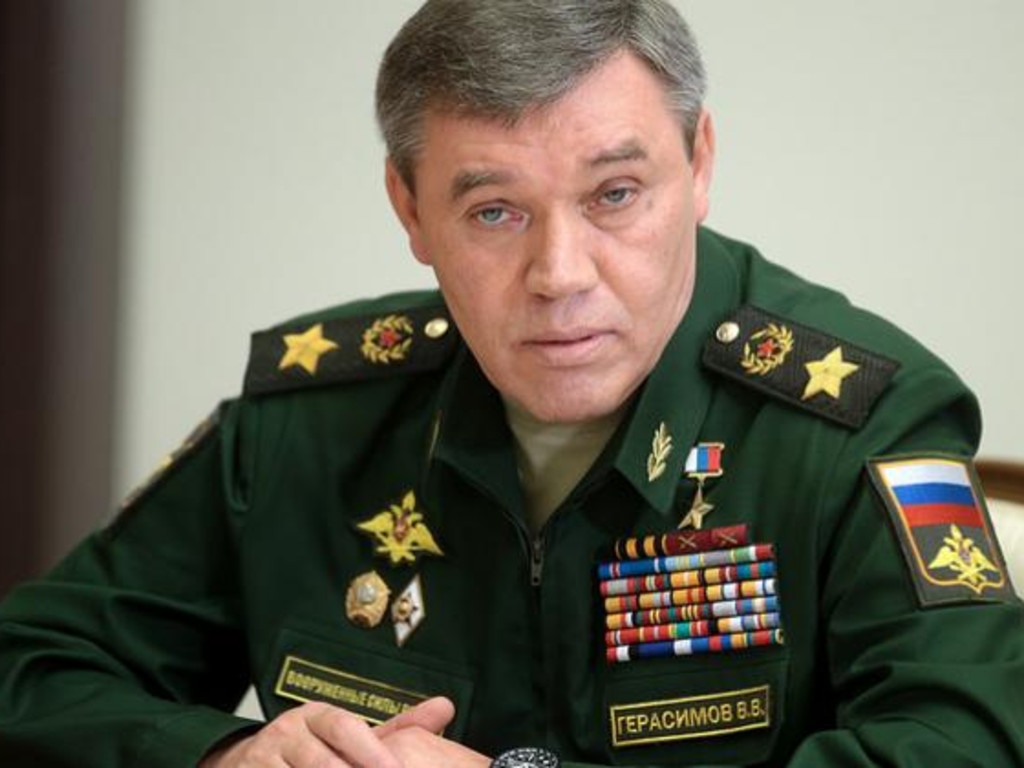Taiwan’s survival ‘crucial for the existence of global democracy’
Taipei is sharing with European states its expertise on disinformation campaigns and cyberattacks.

Taiwan is sharing with European states its expertise on Chinese disinformation campaigns and cyber attacks as evidence emerges of information warfare collusion between Beijing and Moscow against democratic rivals.
The island has long been the target of interference via hacking, fake news and front groups organised by China’s communist regime, which views Taiwan as a “renegade province” and has threatened to take it by force.
But now, according to Joseph Wu, Taiwan’s Foreign Minister, the war in Europe has strengthened the island’s bonds with Western democracies and generated mutual strategic benefits.
Facing its own invasion threat, Mr Wu said, Taiwan was drawing lessons from the success of Ukrainian forces in using lighter weaponry and “asymmetric” tactics. But he emphasised the importance of democratic alliances.
“Taiwan and Ukraine are on the frontline of the conflict between democracy and authoritarianism,” Mr Wu said from Taipei. “We understand that defending Taiwan is not just to safeguard our sovereignty and way of life. We have the responsibility to safeguard democracy for the rest of the world as well.”
Mr Wu, 67, said Taiwan was inspired by the “bravery, defiance and determination to defend themselves” of the Ukrainian people. “The belief these days is that weakness is inviting aggression,” he said. “And we don’t want to be in a position of weakness. We want to be able to defend ourselves.”
He also noted differences from the situation in Ukraine. For one thing, any invasion of Taiwan would be a challenging seaborne operation. Mr Wu noted that the island’s key role in the high-tech supply chain – it is the world’s biggest semiconductor maker – meant it had powerful allies. Taiwan is confident the US would defend the island, although Washington’s official position is one of “strategic ambiguity” about its security commitments.
Taiwan is already fighting a constant war combating what Mr Wu called “cognitive warfare”. The country is sharing its expertise with recipients believed to include the Baltic states and several central European countries.
The cyber onslaught from China has intensified in recent months. “They say, ‘Look, the US abandoned Afghanistan’ and ‘Look, now they won’t commit military forces to Ukraine’. So they claim they won’t help Taiwan either,” Mr Wu said.
“We are dealing with this day in and day out, so we have accumulated a lot of experience. And because of that, there are several countries in Europe that want to share this experience.”
The importance of this co-operation has been reinforced in recent days. In a report, Doublethink Lab, a Taipei cyber monitoring group, revealed Beijing has used its control of media and the internet to amplify Kremlin propaganda that Russian forces are “denazifying” Ukraine and to tie the Hong Kong protests to Kyiv’s resistance to Moscow. In another apparent indicator of covert cyber collusion between Beijing and Moscow, China is said to have hacked Ukraine’s military and nuclear facilities in the build-up to the Russian invasion.
China reinforced its “iron-clad” alliance with Russia last week, asserting during a visit by Sergei Lavrov, the Kremlin’s Foreign Minister, that “there is no ceiling for co-operation”.
China’s intimidation is incessant. Warplanes have flown nearly 1000 sorties into Taiwan’s air defence identification zone during the past year, and navy ships, including a new aircraft carrier, regularly sail through the 180km-wide strait.
Beijing is building its arsenal for an amphibious attack and security analysts predict the greatest danger of invasion could be the approach to 2027. The unification of Taiwan with the mainland is a mission for Mr Xi, who by then is expected to be nearing a legacy milestone – the end of an unprecedented third term in power.
“Traditional types of defence cannot be forgotten, because the Chinese airplanes, missiles or naval ships are still there,” Mr Wu said.
Taiwan’s sophisticated conventional weaponry includes anti-ship missiles and about 500 modern fighter jets, with a submarine fleet in development.
“But,” he added, “if the Chinese attack Taiwan, then in coming onshore asymmetric warfare is probably the most effective defence. This is a lesson we can draw from the war in Ukraine.”
The Sunday Times




To join the conversation, please log in. Don't have an account? Register
Join the conversation, you are commenting as Logout